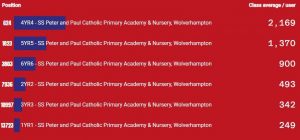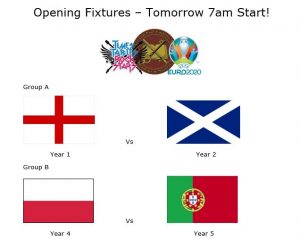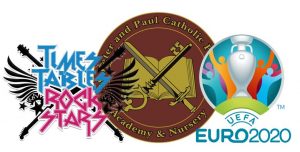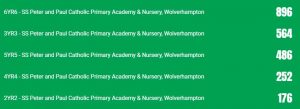SS Peter and Paul have entered the ‘England Rocks’ Times Table Rockstars competition!
Starting on Monday 8th November at 7:30 am and finishing Thursday 11th November at 7:30 pm, children can login and answer as many questions as they can!
Every correct answer earns the class a point. You can play in all game modes to earn points for your class.
- Garage
- Gig
- Jamming
- Studio
- Arena
- Festival
- Soundcheck
- Rock Slam
To limit screen time, the maximum you can play each day towards the competition is 60 minutes, and you can only play between 7:30am and 7:30pm each day.
The points from each class are added up and divided by the number of pupils in the class who play.
Example – the class scores 4000 in total and 25 pupils play.
The class score will be 4000 ÷ 25 = 160.
The class with the highest average is the winner.
The top 3 primary classes, based on average score, will each receive an Amazon gift card.
1st place: £100 gift card
2nd place: £90 gift card
3rd place: £80 gift card
There are also certificates available for:
Top 3 classes in your school.
Top 3 pupils in your class & school.
Top 3 pupils overall.
Top 3 primary classes overall.
Will your class be competing for these prizes, there is only one way to make sure… Log in to Times Table Rockstars next week and answer as many correct answers as possible!
Good Luck!!







